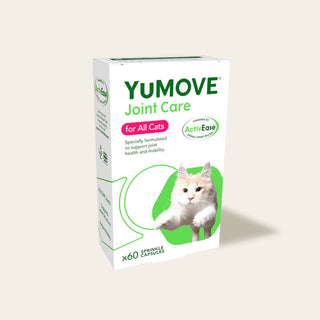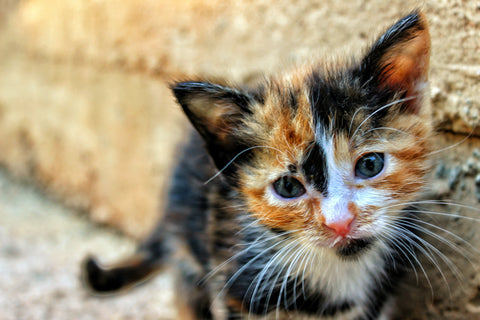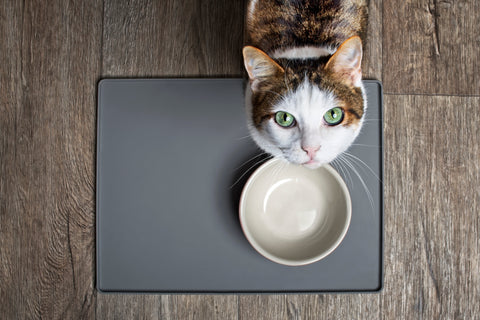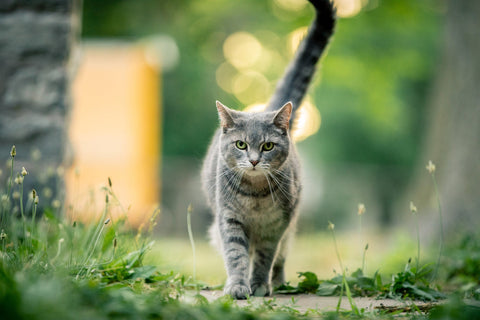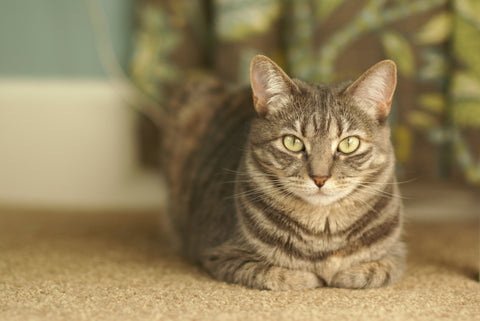
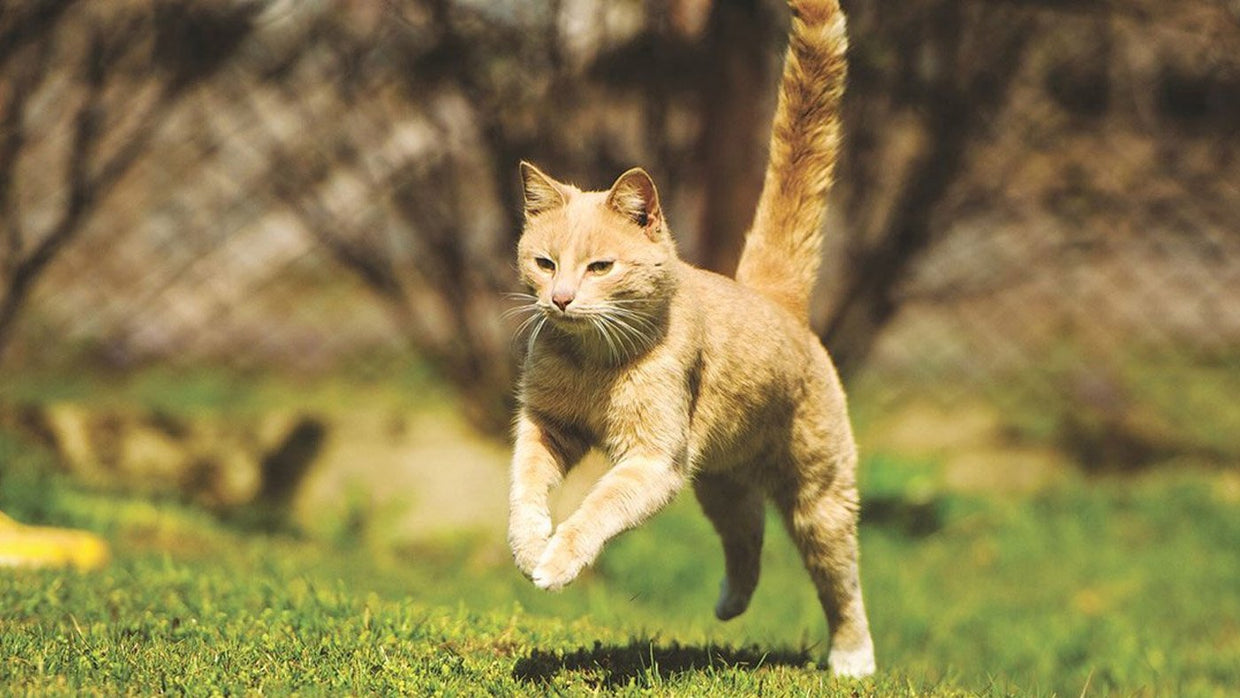
Is your cat itchy? Signs, causes and how to help them
Even the most fastidious felines can become a little itchy from time to time. The question is, what’s causing it, and how can we help?
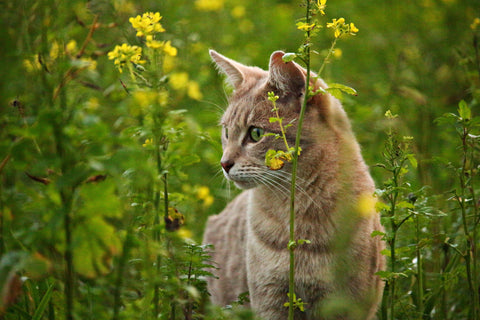
How to tell if your cat has itchy skin
There are six tell-tale signs that your cat’s itchiness needs addressing. Keep a look out for:
- Scratching that’s more than occasional – a few scratches a day is normal, every few minutes is cause for attention
- Over-grooming or your cat pulling out its coat
- Chewing and nibbling at their skin and coat
- Thinner or balding patches in their coat
- Coughing up more hairballs than is normal for them
- Dry or flaking skin
What are the causes of itchy cat skin?
There are lots of reasons your cat might be feeling a bit itchy. Here are some of the most common ones and some ideas on combatting them.
1. Pests
Itchy invaders like fleas, ticks and mites are some of the most common cause of itchy skin in cats. Modern, centrally heated homes mean fleas can be a present all year round, even when it’s not ‘flea season’. Symptoms to look out for include:
- Fleas themselves – tiny black specks that jump and move erratically
- Flea dirt – what looks like black grit in the fur. Put some on a piece of damp kitchen roll. If it leaves a rusty mark, your cat has fleas
- Flea bites on human family members – especially around the ankles!
- Harvest mites – these look like red ‘dust’ and are usually found in areas with less fur
- Ticks – they’re larger than a flea and grow as they feed. They can feel like a little wart or lump and are more common in outdoor cats.
Try this: When it comes to fleas, prevention is always better than cure. It's a good idea to use a high-quality treatment, check how long it lasts and use it regularly. Flea treatments can come in tablets or spot-ons, to suit your cat. If fleas have already taken hold on your household, read our guide on getting rid of fleas.
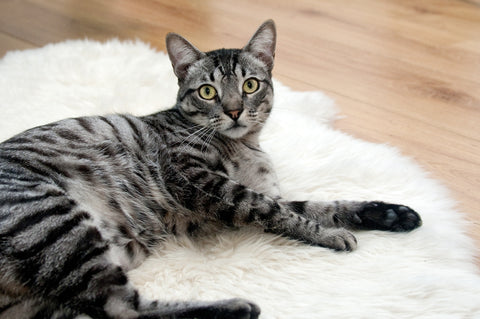
2. Dietary factors
Like humans, some cats have dietary allergies, meaning they might react to certain foods. It can be tricky to spot if diet is making your cat itchy, but it’s possible if any of the following have happened:
- A recent change to their food – for example, if you’ve changed brand
- The manufacturer has changed the formula – an internet search will help you discover this
- You’re feeding a value food – some cheaper brands may contain bulking ingredients that aren’t well tolerated by all cats.
Try this: If you’ve identified food is causing your cat to itch, gradually change their diet to see if it helps or see if probiotics for cats helps. Your vet will be able to advise you on the best options.
3. Environmental factors
We tend to keep our homes very warm and dry, which can dry out human and feline skin. While it’s easy for us to slather on some moisturiser, it’s not so easy for our furry friends.
Cats can also be sensitive to chemicals found in washing powder and cleaning products, as well as anti-cat sprays your neighbours might be using around their gardens.
Environmental factors may be the cause if…
- There are no pests and you haven’t changed their diet
- Your cat is inconsistently itchy – they scratch more after coming in from the garden, for example
- You’ve recently changed something around the house – new scented candles, washing powder or cleaning products
- It’s winter and the heating is on high a lot
Try this: By a process of elimination, try to figure out what’s causing the itching. Revert to your old brand of washing powder to see if things improve. Turn down radiators and ensure your cat’s favourite room is well-ventilated.
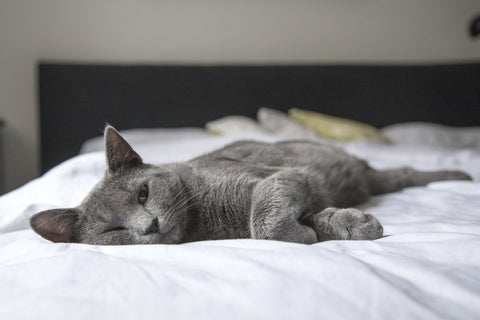
How to stop cats itching due to their environment:
If you think your cat is itching due to environmental factors, the first treatment is to enrich its environment. This can help cats who groom because they’re stressed or bored. There are lots of reasons cats can be stressed including changes to routine, having to share resources with other cats, or being lonely if they are left alone for much of the day. Work on the causes where possible, and in the meantime give them a happier home by:
- Creating more opportunities to climb and hide – especially if yours is multi-cat household.
- Create separate feeding spots if you have more than one cat.
- Invest in some fun toys to keep your kitty entertained if you work long hours – food puzzles are great.
- Get crafty and make a DIY cat tree – or get a modular kit and go all-out for a cat castle!
- Make sure they have a place to scratch – it’s natural and healthy for them to do so.
- Treat them to some cat DVDs, or if you want a real treat for your kitty and yourself, invest in an aquarium. Many cats will be transfixed by the movement of the fish!
- Make time for play – cats may be independent, but most really value interaction, so make time for some fun and games every day.
4. Psychological factors
Everyone knows cats like to keep clean. But did you know they also like grooming as a calming mechanism? The action of ‘washing’ can be soothing to them. However, too much grooming can lead to irritated skin and patches of fur loss, which can be a sign that your cat isn’t happy.
Ask yourself the following questions to see if psychological factors could be at play:
- Does your cat now spend more (or less) time alone?
- Have you welcomed a new human or furry family member that’s upset the balance?
- Has something changed recently – is your routine different?
- Have your neighbours recently got a new pet? A new cat on the patch can upset the delicate territorial balance, especially if you live in a built-up area, and dogs can cause stress as cats adjust to the change
- Some cats find changes to their routine upsetting, so they may get stressed if you have lots of visitors over Christmas or if there are lots of scary bangs at fireworks time.
Try this: Make sure your cat has a safe, cosy space to escape to when they’re feeling stressed. Give them plenty of attention when they ask for it, or try a cat calming supplement.
5. Medical factors
If your cat is itchy and you can’t work out why, a trip to the vet will help to pinpoint what’s happening and help your feline friend feel on top form again.
Support their skin and coat with a supplement
YuMOVE Skin & Coat Care Moulting Cat contains high-quality Omega-3 and Omega-6 oils to soothe and nourish your cat’s skin from within and reduce their tendency to over-groom.
Simply add a few drops to their food every to help restore their coat to its natural beauty.
Save 20% every month when you sign up for a subscription today.
